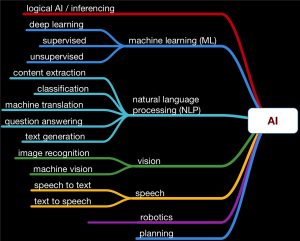Artificial Intelligence and the Legal Market
Lately, this theme has always been present in all the discussions about the future of the legal market, involving big and small offices and the very way the legal profession will be affected by this new (not so new) technology.
This theme has been studied for at least 25 years, but it became known by the big public when, in 2011, IBM cognitive computer system, the “Watson”, beat the two champions of the famous entertainment program of the American television, called “Jeopardy!”, which has been broadcasted by CBS since 1964.
During those 25 years, several parallel fronts of developers have specialized in the recognition of images and faces, understanding and processing of the human natural language, robotics, computational learning (“machine learning”), unstructured logics (language) and computational neural languages, which all together form the artificial intelligence.

Since then, the theme has been introduced in all the discussions and speeches made by futurologists and stressed as an inexorable path to the substitution of human beings by the machines, almost coming to the grim view of the film ‘ Matrix’.
Bringing the discussion to the plane of reality and greatly simplifying the issue, what is generally called artificial intelligence are, in fact, mathematical (rather sophisticated, by the way) algorithms developed for very specific tasks, associated with the increasing exponential computing power and that have got the skill to self-adjust according to the results that are obtained.
It is true that all this is already causing an impact and will impact even more all the professions as we know them know today, but this said impact becomes clearer in law as this sector has been relatively protected along the time, exactly due to the difficulty, so far, in processing the language and unstructured information by means of the computer!
In the legal area, there are several development fronts using artificial intelligence (or at least parts of it) such as: knowledge automation, legal research, forecast or prognosis, contracts analysis, e-discovery and/or smart search engines. All these systems and technology have not been created to replace human beings, but to help them to be more efficient and should be adopted by all those (offices and their managers) that are attentive to the evolution of the market and the profession.
There are at least 35 companies in the North American market counting on products that are ready for the above-mentioned operation and also at least a dozen large international offices embracing this technology and becoming more efficient!
In a market that is effectively evolving due to the increase of competitiveness (internal and external), as well as pressure for prices, segmentation and consistent loss of revenues (at least in the North-American market), the adoption of technologies such as the “AI” is not only an option, it is a question of survival!
José Paulo Graciotti, is consultant and founding Partner of GRACIOTTI ASSESSORIA EMPRESARIAL, engeneer by Escola Politécnica Universidade de São Paulo, with Financial MBA at FGV and specialized in Knowledge Mnagement by FGV. ILTA Member since 1998 (International Legal Technology Association) and ALA (Association of Legal Administrators), with more than 28,7 years managing Law Firms in Brazil – www.graciotti.com.br
* Image from NEOTA LOGIC


